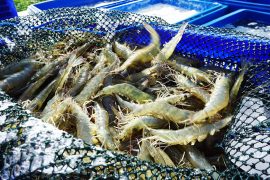
The battle between squirrels is won through their gut bacteria
In the UK countryside, there are two types of squirrels: red and grey. However, they do not coexist peacefully. Since the arrival of the larger grey squirrel from North America in the 1800s, the native red squirrel population has sadly declined.
There are two main reasons for this decline: the squirrels struggle for resources like food, and the grey squirrels carry a virus called squirrelpox that only harms the red squirrels.
Recently, scientists from the University of Surrey, Bangor University and the University of Liverpool discovered a surprising third reason: tiny gut bacteria might be helping one side win the battle.
Studying gut bacteria
The researchers studied the bacteria in the guts (caeca) of the animals. Following ethical guidelines, they obtained squirrel remains from North Wales and collected gut samples from ten red and ten grey squirrels.
The DNA of the samples was then extracted using a technique called 16S rRNA gene sequencing. The researchers also checked for antibiotic resistance of the gut bacteria. They specifically focused on E. coli, a type of bacteria that can sometimes cause illness.
Finally, they compared all of the different bacteria found. The goal was to understand how these tiny residents might be influencing the overall health of their furry hosts.
Microbiome differences
The researchers found fascinating differences between the two types of squirrels. In particular, they determined that grey squirrels have more diverse gut bacteria.
The scientists also compared the specific types of bacteria and found distinct differences. Grey squirrels have more bacteria from groups like S24-7, RF39, and Rikenellaceae, while red squirrels have more Bacilli.
This difference could impact how well the squirrels fight off diseases and how they interact with their environment.
For example, the bacteria in grey squirrels can digest a compound called “calcium oxalate” found in tree bark. This allows them to extract calcium more efficiently, potentially giving them an advantage over red squirrels.
Antibiotic resistance
Unfortunately, all of the bacteria from both squirrel types could resist a common medicine called “amoxicillin/clavulanic acid.”
Even worse, some of the grey squirrels had bacteria that could beat stronger medicines like “cefotaxime” and “sulfamethoxazole/trimethoprim.” This means the helpful bacteria living inside these squirrels had tricks to avoid the effects of these medicines.
Broader implications
“More research needs to be done to further understand the relationship between red and grey squirrels and their gut microbiota, but perhaps in the future we could develop this research into methods that could promote healthy gut bacteria in red squirrels or new ways of preventing squirrels from damaging trees,” said study co-author Chris Nichols.
“These findings will help further our understanding of the impact grey squirrels have on the UK’s red squirrel population and our vitally important trees and forests, which will in turn help us understand how best to protect them in the future,” concluded Professor Ian Brown of the Animal and Plant Health Agency.
More about red squirrels
Red squirrels, native to the UK, are known for their distinctive rich red fur, tufted ears, and bushy tails. They are smaller than the grey squirrel and are found mainly in areas of Scotland, the Lake District, and parts of Wales and England, particularly in coniferous forest habitats which provide their preferred food sources such as seeds from pine cones.
The red squirrel is an iconic species in the UK, celebrated for its playful nature and agility. Conservation efforts are underway to protect and increase the population of red squirrels. These efforts include habitat management, controlling grey squirrel populations, and reintroduction projects to areas where red squirrels have declined or disappeared.
The study is published in the Journal of Medical Microbiology.
Like what you read? Subscribe to our newsletter for engaging articles, exclusive content, and the latest updates.
—-
Check us out on EarthSnap, a free app brought to you by Eric Ralls and Earth.com.













